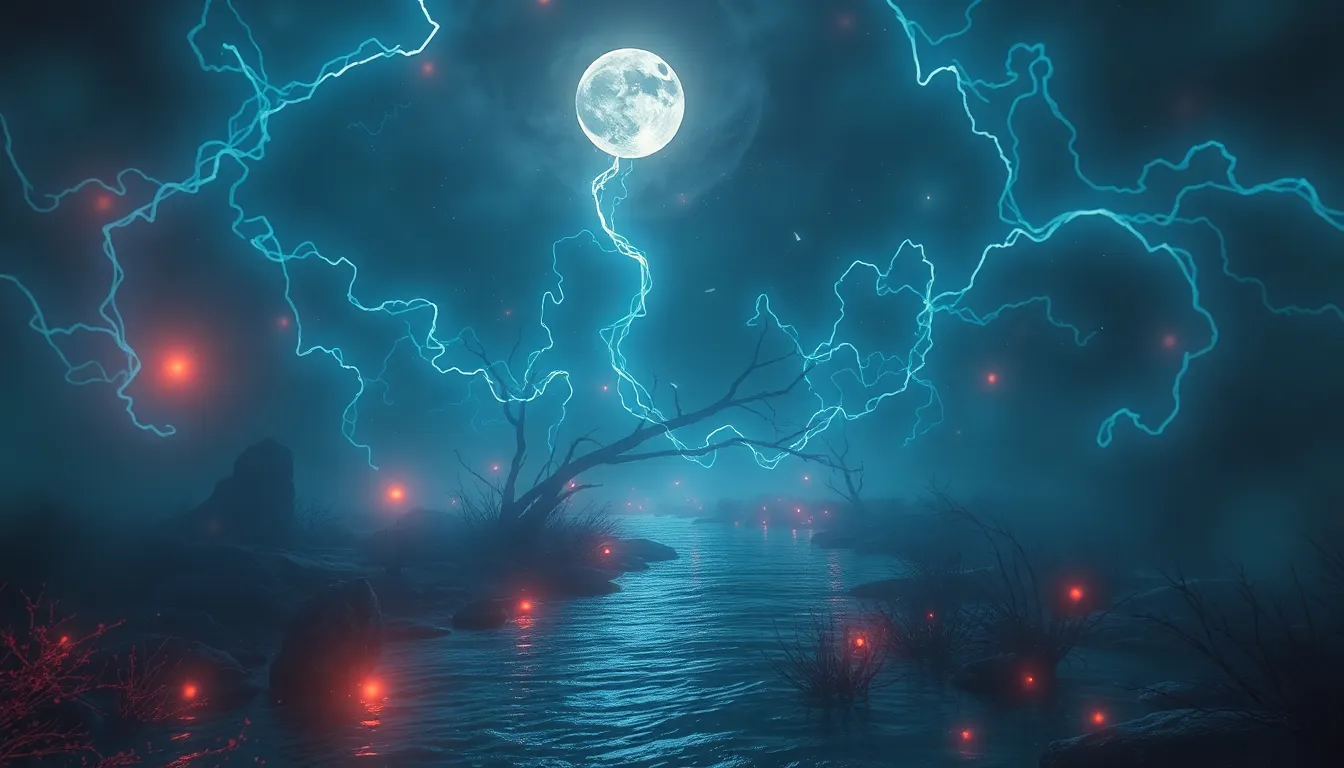The River of the Wise: Myths of Knowledge Seekers
Introduction: The River as a Metaphor for Knowledge
The concept of the River of the Wise serves as a profound metaphor for the pursuit of knowledge. Rivers, often depicted as flowing freely, represent the continuous journey of learning and enlightenment. They symbolize the passage of time and the accumulation of wisdom, flowing through the landscapes of our minds and cultures.
Myths play a crucial role in understanding the quest for knowledge, acting as vessels that convey the values, beliefs, and struggles of societies. Through these narratives, we explore the paths taken by knowledge seekers and the wisdom they gained along the way.
The Origins of Knowledge-Seeking Myths
Throughout history, various cultures have developed myths that articulate the journey toward knowledge. These stories often reflect the values and aspirations of early civilizations.
- Mesopotamia: The Epic of Gilgamesh highlights the quest for immortality and wisdom.
- Ancient Egypt: Myths surrounding Thoth, the god of wisdom, showcase the importance of knowledge in governance and spirituality.
- India: The Vedas speak of sages who sought enlightenment through rigorous study and meditation.
These early myths laid the foundation for understanding knowledge as a vital element of human existence.
Key Figures in Knowledge-Seeking Myths
Throughout various mythologies, certain figures stand out as legendary knowledge seekers. Their stories impart lessons about wisdom and the pursuit of understanding.
- Prometheus: In Greek mythology, he defied the gods by stealing fire for humanity, symbolizing the quest for enlightenment and the consequences that accompany it.
- Thoth: The Egyptian deity associated with writing and wisdom, Thoth is often depicted as a guide for those seeking knowledge.
- Odin: In Norse mythology, Odin sacrifices much in pursuit of knowledge, including an eye, demonstrating the lengths one must go to for wisdom.
These figures embody the spirit of inquiry and the transformative power of knowledge.
The Symbolism of Rivers in Mythology
Rivers are rich in symbolism across various mythologies, representing not only the flow of knowledge but also life itself.
- Life: Rivers nourish the land and its inhabitants, symbolizing the sustenance that knowledge provides.
- Transition: The journey down a river often signifies a transition, akin to the stages of learning and personal growth.
- Wisdom: Just as rivers gather water from various sources, knowledge is accumulated from diverse experiences and teachings.
In contrast, other natural elements like mountains symbolize stability and permanence, while seas may represent the vastness of the unknown.
The Journey of the Knowledge Seeker
The journey of the knowledge seeker is a common theme in mythology, often depicted through a series of stages.
- Departure: The seeker leaves their home, representing the beginning of their quest.
- Trials: Along the journey, they face challenges that test their resolve and wisdom.
- Revelation: The climax often involves a moment of enlightenment or revelation.
- Return: The seeker returns home, transformed and equipped with new knowledge.
These stages resonate today, reminding us that the pursuit of knowledge is often fraught with challenges and rewards.
Cultural Variations of the River of Wisdom
The concept of the River of the Wise appears in various cultural interpretations, each adding unique elements to the myth.
- Mesopotamia: The Euphrates and Tigris rivers were seen as sources of life and knowledge.
- India: The Ganges is revered as a sacred river, symbolizing purification and enlightenment.
- Africa: Rivers in African myths often represent the connection between the living and the ancestors, emphasizing collective knowledge.
These cultural variations enrich our understanding of the universal quest for wisdom.
Modern Interpretations and Adaptations of Knowledge Myths
In contemporary literature and media, ancient myths continue to inspire reinterpretations that resonate with modern audiences.
- Literature: Authors draw on mythological themes to explore the complexities of knowledge in a digital age.
- Film: Movies often depict the hero’s journey, paralleling ancient myths with modern quests for understanding.
- Technology: The internet serves as a modern river of knowledge, providing vast resources and connections.
These adaptations show the enduring relevance of knowledge-seeking myths in a rapidly changing world.
The Role of Mentorship and Guides in Knowledge Myths
Mentorship is a recurring theme in knowledge-seeking myths, where guiding figures play crucial roles in the seeker’s journey.
- Merlin: The legendary wizard serves as a mentor to King Arthur, imparting wisdom essential for leadership.
- Gandalf: In J.R.R. Tolkien’s works, Gandalf guides Frodo in his quest, symbolizing the importance of guidance in the pursuit of knowledge.
These figures exemplify the significance of guidance and support in the learning process.
The Dangers and Challenges Faced by Knowledge Seekers
Knowledge-seeking is not without its dangers, as depicted in various myths.
- Hubris: Many myths warn against the arrogance that often accompanies knowledge, as seen in the story of Icarus.
- Isolation: The pursuit of knowledge can lead to alienation from others, as exemplified by the tale of Faust.
These narratives remind us that seeking knowledge should be balanced with wisdom and humility to avoid dire consequences.
Conclusion: The Enduring Legacy of Knowledge-Seeking Myths
The myths surrounding knowledge seekers and the metaphor of the River of the Wise continue to resonate in modern society. They remind us of the value of wisdom, the importance of mentorship, and the significance of the journey itself.
As we navigate our paths in life, let us embrace the quest for knowledge, drawing from the lessons of these ancient tales. The River of the Wise flows through our lives, inviting us to explore its depths and share the treasures we discover along the way.



